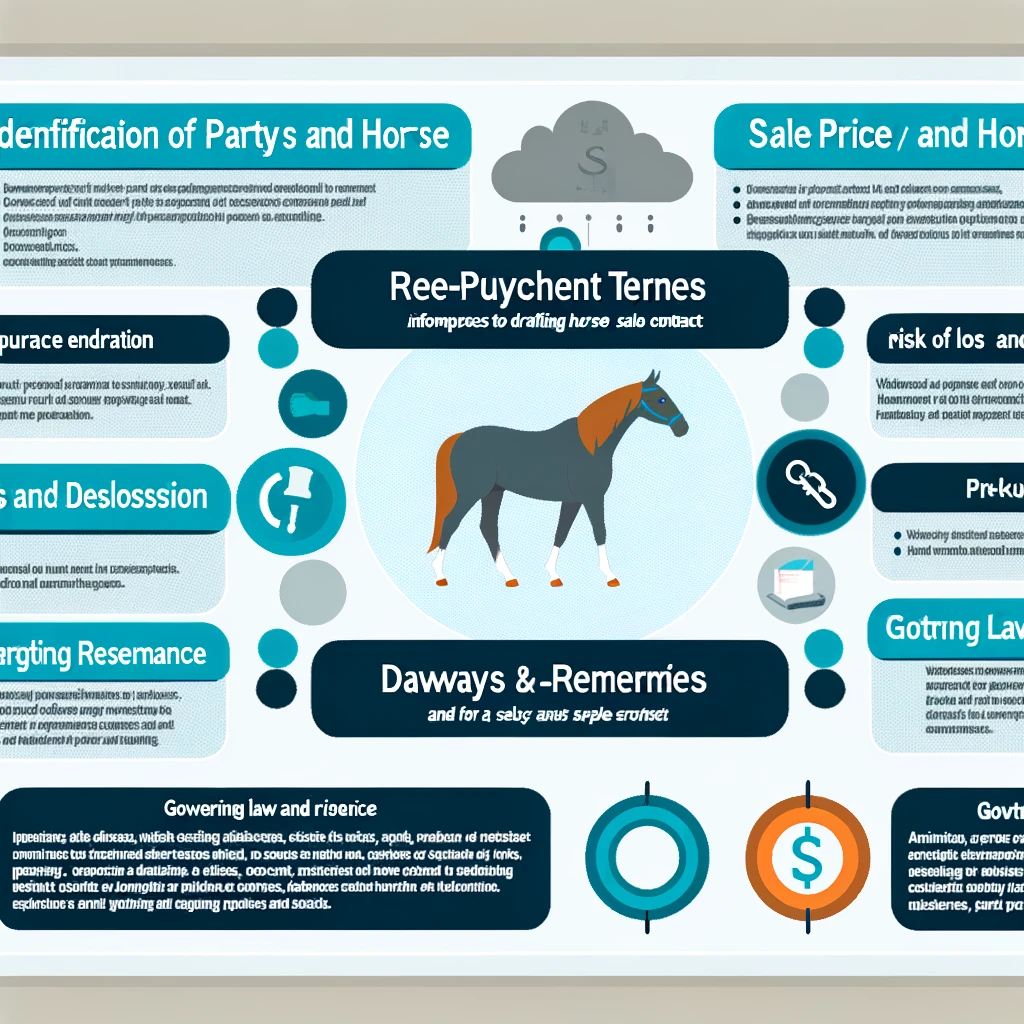Navigating Horse Sale Contracts: A Comprehensive Guide
Introduction
Purchasing or selling a horse is a significant transaction that involves a considerable amount of money and trust. To ensure that both parties—buyer and seller—are protected, it's crucial to have a well-drafted horse sale contract. This document not only formalizes the agreement but also helps prevent misunderstandings that could lead to disputes. In this comprehensive guide, we delve into the essentials of horse sale contracts, highlighting key components, legal considerations, and best practices for drafting an agreement that safeguards your interests.

Understanding Horse Sale Contracts
A horse sale contract is a legally binding agreement between a buyer and a seller outlining the terms and conditions of the sale of a horse. The primary goal of this contract is to clearly specify the obligations of both parties to avoid any ambiguity that might lead to legal conflicts.
Key Components of a Horse Sale Contract
Identification of Parties and Horse
The contract should start with the full legal names and contact information of both the buyer and the seller. Additionally, a detailed description of the horse, including its name, breed, date of birth, color, and any unique identifiers (such as microchip number), is essential. For more on horse identification, visit the American Horse Council's guide on horse identification.
Sale Price and Payment Terms
Clearly state the purchase price of the horse and the terms of payment. This section should also cover any deposit required, payment schedule, and acceptable payment methods. The University of Vermont Extension offers resources on financial transactions in agricultural sales.
Warranties and Disclosures
The seller should provide warranties regarding the horse's health, soundness, and any known vices or behavioral issues. It's also important to disclose the horse's medical history and current vaccination status. For details on equine health, consult TheHorse.com, an authoritative source on horse health care.
Pre-Purchase Examination
The contract may stipulate that the sale is contingent upon a satisfactory pre-purchase examination by a licensed veterinarian chosen by the buyer. The American Association of Equine Practitioners provides guidelines for pre-purchase examinations.
Risk of Loss and Insurance
Define the point at which the risk of loss shifts from the seller to the buyer. It's common for the risk of loss to transfer upon delivery of the horse. Buyers are encouraged to secure insurance for the horse, and sources like the National Equine Insurance can be consulted for insurance options.
Default and Remedies
Outline the consequences if either party fails to fulfill their obligations under the contract. This section ensures that there is a clear understanding of the legal recourses available.
Governing Law and Dispute Resolution
Specify the state law that will govern the contract and the method of dispute resolution, whether it be through arbitration or litigation. Resources like FindLaw can help understand state-specific laws.
Best Practices for Drafting a Horse Sale Contract
Seek Legal Advice: Consult with an attorney who specializes in equine law to ensure that the contract complies with state laws and adequately protects your rights. The American Bar Association has resources on animal law that may be helpful.
Be Specific: Avoid vague language. The more detailed your contract, the less room there is for interpretation and disagreement.
Document Everything: Keep records of all communications, payments, and veterinary reports related to the sale. Documentation can be crucial in the event of a dispute.

Create & Review Your Contracts 10x Quality and Ease
Lawyer-level AI handles all your contract needs, with real lawyers providing safeguarding support

Conclusion
A well-crafted horse sale contract is invaluable in securing a fair and transparent transaction for both the buyer and the seller. By including detailed descriptions, clear terms, and legal protections, you can ensure that the sale proceeds smoothly and that both parties are satisfied with the outcome. Remember, consulting with a legal professional experienced in equine law is the best way to guarantee that your contract meets all necessary legal standards and adequately protects your interests.
For further information and resources on drafting horse sale contracts and understanding equine law, visit the Equine Legal Solutions website, a specialized legal service provider for the equine community.

